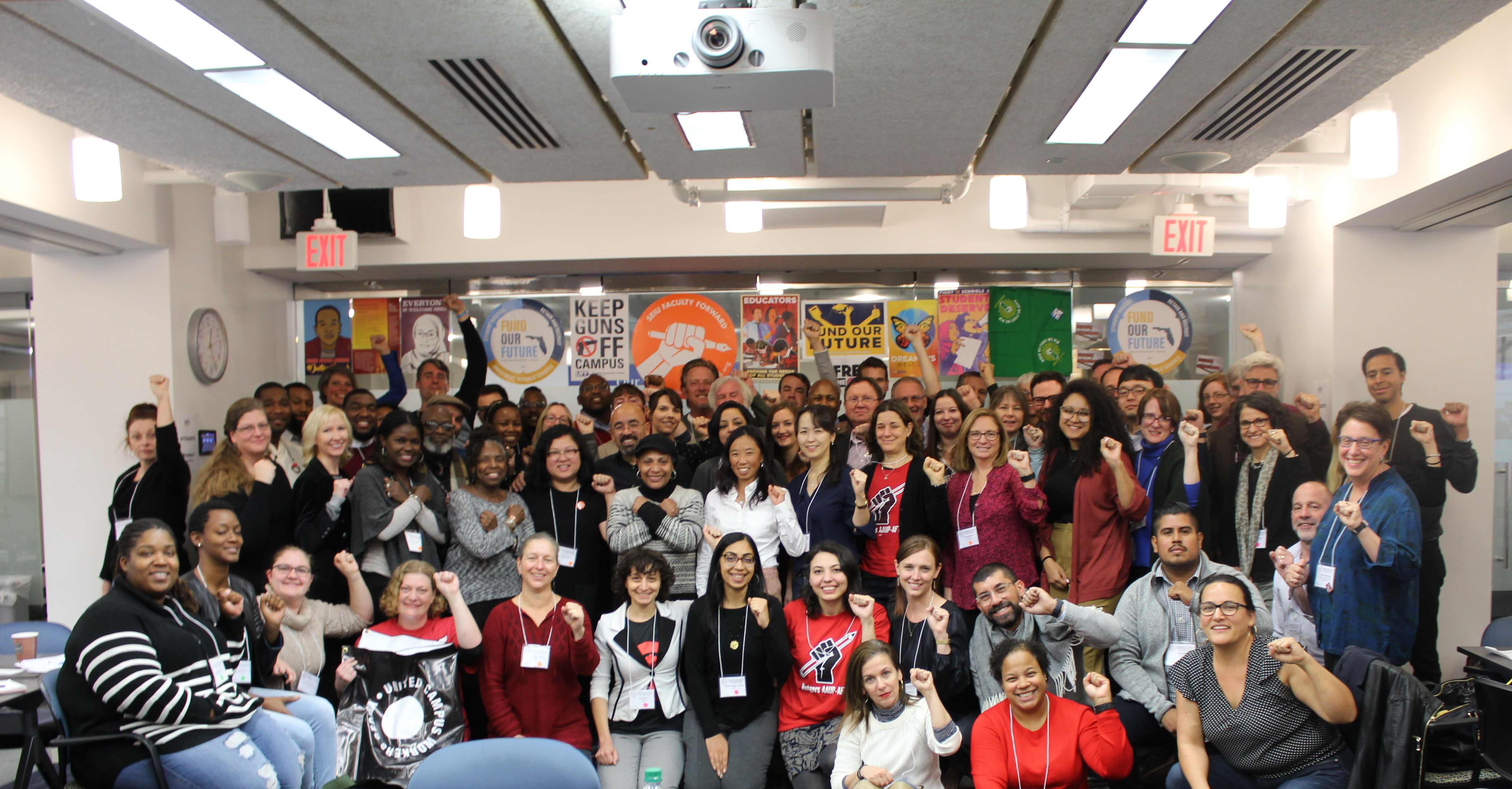It’s not often that people get excited about contract bargaining but that is exactly what happened last month in Washington D.C. when unions organizing in higher education met to discuss how to open our tables for common good bargaining. Five unions–SEIU, AFT, NEA, AFSCME and CWA national and local affiliates–worked with the Center for Worker Organization at Rutgers University and the Kalmanovitz Initiative for Labor and the Working Poor at Georgetown to design the two-day convening. Our goal is to conscientiously and systematically transform our higher education organizing to address issues that affect our members in their dual roles as workers and as community residents. We want to address issues that affect the broader campus community as well as the surrounding community of which colleges and universities are a part of.The myriad issues that impact higher ed workers and the broader communities impacted by our campus are not wildly divergent–they rarely are–but we must work to recognize our shared impact, identify the root causes and employ our collective power to address.
The diversity and disparity which characterize the higher education industry was reflected in the room. Elite, research institutions, community colleges, small, minimally-endowed liberal arts colleges, collective bargaining agreement or none, solid blue or solid red states, there was a shared recognition of the power and responsibility that higher education institutions have beyond whom they employ. As labor activists, we recognize that if a company is mistreating its workers, there is a pretty good chance the same companies are short changing their clientele and other stakeholders. Our institutions of higher education are no exceptions.
And some of the most important stakeholders in higher education: taxpayers. All higher education institutions in the U.S., every single one, whether they are public colleges, for-profit institutions, or have endowments greater than half the worlds’ GDP, receive direct public dollars through state budgets, grant funding, and/or public tuition and student loan monies. All non-profit institutions receive valuable tax exemption which means no property tax revenue for local communities. College endowments too often serve as tax shelters for wealthy donors instead of supporting immediate campus needs. University boards meant to provide oversight and support become a circle of self-dealing by corporate trustees with no accountability to local communities.
The convening highlighted the various issues facing campaigns on multiple levels with nascent campaigns like the Massachusetts Teachers, BCG stalwarts such as UTLA, AFSCME 3299, United Campus Workers (CWA), and many unions just taking initial steps toward this process all have obstacles to overcome in organizing effective BCG campaigns. We engaged in rounds of skill sharing: learning to do corporate research, brainstorming on how to widen the BCG circle within our membership, and keeping racial justice work central to this work. The packed, energetic room asked hard questions and wrestled with difficult topics in this BCG “bootcamp.” SEIU locals’ members and staff who attended were greatly inspired by the meeting and will continue the learning to build transformative bargaining and provide sustainable and engaged units.
Malini Cadambi Daniel is the Higher Education Director at SEIU and a member of the BCG Advisory Committee
